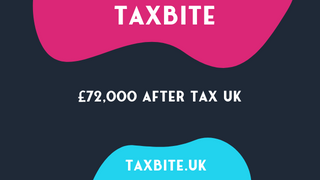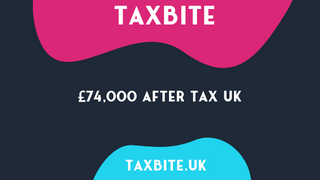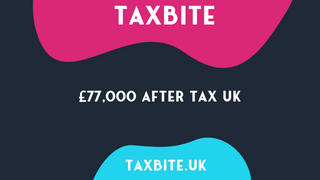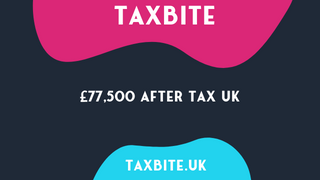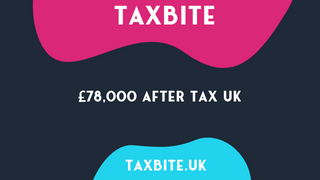Understanding income tax and national insurance contributions is crucial in the UK to avoid unexpected deductions from your paycheck. In this guide, we will break down the main components of income tax and national insurance contributions, so you can confidently navigate the complex tax system. From the concept of taxable income to the structure of the tax year, we will explore everything you need to know to ensure you receive a potential after-tax income of £72,000 in 2023.
Calculating after-tax income is key for UK employees. Income tax is the tax on personal income, while national insurance contributions are payments made to the government by employed individuals and businesses. The UK’s tax year runs from April 6th to the following April 5th. To get after-tax income, deduct income tax and national insurance contributions from gross income.
First calculate gross income, which is total earnings before deductions. Then deduct income tax and national insurance contributions. This gives net income – the employee’s take-home pay.
It’s important to know current tax rates and bands in the UK. For 2021-2022, the basic rate of tax is 20% for income up to £50,270. Higher earners could be taxed up to 45% for income over £150,000. Different tax levels apply for England, Wales, Northern Ireland, or Scotland.
Online tax calculators make these calculations easier. For example, reed.co.uk and income-tax.co.uk have calculators that generate estimates based on taxable earnings. By being informed and using reliable online tools, employees can accurately work out their take-home pay after deductions.
Knowing about income tax and national insurance contributions is essential for UK employees who want to understand their financial obligations and easily calculate their take-home pay.
The UK government’s tax year starts on April 6 and ends on the following year’s April 5. All income earned during this period, including salary, bonuses and other earnings, may be subject to taxation. To work out the total taxable income, all of the taxpayer’s sources of revenue are taken into account.
The table below shows the time frame and thresholds for the 2022/2023 and 2023/2024 tax years:
| Tax Year | Duration | Thresholds |
|---|---|---|
| 2022/2023 | April 6, 2022 – April 5, 2023 | Personal Allowance: £12,570; Basic Rate Threshold: £37,700; Higher Rate Threshold: £50,270; |
| 2023/2024 | April 6, 2023 – April 5, 2024 | Personal Allowance: £12,870; Basic Rate Threshold: £38,810; Higher Rate Threshold: £50,290; |
Taxable income is money received but not in the exempt category laid down by the law. This includes salaries from jobs, pensions, and rental income from any properties owned. This all adds up to the total taxable income which is then used to calculate tax liability.
Therefore, it’s vital to keep track of your taxable income. Once the taxman is done, that £72,000 salary may seem more like £50,000. Knowing the tax year and taxable income is crucial to avoid penalties and stay compliant with the law.
Calculating how much you’ll take home after tax can feel like a tricky exercise, but it’s essential to gain control over your finances. In this section, we will look at a salary of £72,000 in 2021 as an example. We begin by detailing how the gross income is calculated before moving on to explain how income tax and national insurance impact your final paycheck. Finally, we explore the calculation for your net income, and what you can expect to take home.
Gross income calculation is necessary to determine a person’s income. This is the total amount earned before deductions, such as taxes, pensions, and National Insurance. To work out gross income, earnings from sources like employment, self-employment, and rental income must be added together.
For example, in the UK, if someone earns £72,000 per year, their gross monthly income would be £6,000. This is calculated by dividing the yearly salary (£72,000) by twelve months. So, their gross monthly income would be £6,000.
It’s essential to remember that knowing one’s gross income isn’t the same as their after-tax income. To know the net income [take-home pay], deductions need to be calculated on taxable earnings [income tax] and National Insurance Contributions.
Therefore, knowing only a person’s gross salary doesn’t accurately tell us how much money they will have each month. Tax and National Insurance Contributions must be taken into account.
To calculate net income after taxes, income tax and National Insurance Contributions (NIC) must be taken into account. Income tax is a tax on an individual’s earnings. As for NIC, it is paid by both employees and employers for state benefits.
For a salary of £72,000 in 2023, deductions for both taxes total £24,691. This leaves a net income after taxes of £47,309.
It is important to remember that NIC can vary depending on an individual’s employment status and self-employment. Income tax rates and tax bands also change annually. They are based on the individual’s earnings and personal allowance. All of these factors must be considered when calculating deductions for income tax and NIC.
Net income is the amount you get after taxes and other deductions are taken from your gross income. To calculate the net income for a salary of £72,000 in 2023, you must first find your gross income. This involves adding all income like basic pay, bonuses, commissions, benefits in kind, and other allowances given by your employer.
Once you have the gross income, you need to deduct personal allowance (£14,570). Then, use the taxable income to identify the correct tax band. Earnings up to £50,270 are taxed at 20%, earnings from £50,271-£150,000 are taxed at 40%, and earnings over £150,000 are taxed at 45%. You must also deduct NIC contributions, which is 12% on earnings from £9,568-£50,270.
After calculating deductions, subtract them from the gross salary to get the net income. For a salary of £72,000 in 2023/24 tax year in England or Wales, the net annual take-home pay would be around £46,716.
Online tax calculators can help you determine your after-tax earnings. Examples include reed.co.uk and incomes-tax.co.uk. Make sure to understand personal allowances and expenses that qualify for tax relief.
Get ahead of the game by understanding the upcoming tax rates and bands that will be implemented in the UK in 2023/2024. Curious about what tax rates will apply in England, Wales, Northern Ireland, and Scotland? Look no further, as we have the updated information.
Prepare yourself for what’s to come by checking out the latest facts, figures, and events from trusted sources.
Tax rates and bands in the UK are the same regardless of location. The government sets tax bands each year, determining how much tax an individual needs to pay. The table below shows income tax bands and rates for England and Wales.
| Tax Rates and Bands for England & Wales | Income Tax Bands | Income Tax Rates |
| Basic rate | £0 – £50,270 | 20% |
| Higher rate | £50,271 – £150,000 | 40% |
| Additional rate | Above £150,000 | 45% |
In Scotland, the rates and bands of income tax differ. Plus, the Scottish government collects National Insurance Contributions (NICs). They set their own NIC rates every year.
Wherever you live in the UK, it’s important to know the tax brackets and rates and plan your finances accordingly. For detailed information about after-tax income, use online tax calculators from reliable sources such as HM Revenue & Customs (HMRC) or companies like Reed.co.uk or Income-tax.co.uk. Input your salary and get accurate info about after-tax income in seconds. Always consult a financial advisor for proper guidance on tax planning and management.
Are you struggling to calculate your after-tax income? Look no further! This section provides all the necessary information on utilizing tax calculators to accurately determine your after-tax income for the year 2023. We will examine the tax calculator provided by reed.co.uk and instruct you on how to use the income-tax.co.uk calculator. Say goodbye to frustration and uncertainty, and begin planning for your financial future with confidence.
reed.co.uk’s tax calculator is a user-friendly, efficient tool. It helps individuals to calculate their net income. It enables them to manage their finances better. The calculator has various variables like income, pension contributions, and student loans. Users can input precise info in the intuitive interface and get a thorough result right away. Plus, it is accessible online, so anyone with an internet connection can use it.
But, other unknown factors might influence an individual’s finances. Thus, this tool should only be used as a guide. Consult a financial advisor for personalised advice.
Reed.co.uk is a renowned job search portal. It provides tools to help users with career growth and finance management. The tax calculator is one of them. Founded in 1995, Reed.co.uk offers its services to millions of job seekers all over the globe.
To sum up, use the reed.co.uk tax calculator to work out your taxes accurately. But for more detailed financial advice, it is wise to talk to an expert.
Income-tax.co.uk is perfect for UK taxpayers wanting to compute their after-tax income. It has a free tax calculator that can calculate net income from gross salary, deductions and National Insurance payments. Just enter your gross annual income, personal allowance and other information, and the calculator does the rest.
The breakdown of how each figure was obtained is helpful, plus there is a summary table of how much Income Tax each band pays. Plus, you can save calculations or share them by email or social media.
This website offers helpful insights to help individuals make informed decisions, such as for job or salary changes. Employers can use it to work out an individual’s take-home pay.
In short, understanding the use of the income-tax.co.uk calculator is useful for UK taxpayers. It’s a simple tool to help get a clear view of net income.
If you earn £72,000 in the UK in 2023, you need to know about tax deductions. Currently, your income tax is £18,300 and National Insurance is approx. £6,900 – so your after-tax income is £46,800. Tax rates can change, and the government usually tells us the updates in March/April. It’s wise to talk to a tax pro for accurate info.
For 2023/2024, there’s a tax-free personal allowance of £12,570 for those under 65. Those aged 65-74 get £13,430 and 75+ get £14,290. Factors like child benefit and pension contributions can affect your after-tax income. For example, child benefit over £50,000 may need to be repaid through tax. Pension contributions lower taxable income. E.g. if you contribute £5,000, your taxable income of £72,000 is adjusted to £67,000. This lowers your income tax to £16,200 and National Insurance to £6,500, giving an after-tax income of £44,300.
It’s essential to understand the UK taxation system for informed financial decisions and optimized income. Get advice from a tax professional.
For the 2023/2024 tax year, the net income after tax for a salary of £72,000 in England, Wales, and Northern Ireland is £49,709.10 and in Scotland, it is £47,941.03.
The deductions from gross income for a salary of £72,000 in 2023/2024 tax year for England, Wales, and Northern Ireland include income tax (£16,231.60), national insurance (£6,059.30), and total deductions of £22,290.90. For Scotland, the deductions include income tax (£17,999.67), national insurance (£6,059.30), and total deductions of £24,058.97.
The marginal tax rate for a salary of £72,000 in 2023 is 43.3%. This means any additional income will be taxed at this rate. For example, an increase of £100 in salary will be taxed £43.25, leaving a net pay increase of £56.75.
The average tax rate for a salary of £72,000 in 2023 is 30.5%.
A £1,000 bonus will generate an extra £568 of net income, while a £5,000 bonus will generate an extra £2,838 of net income for a salary of £72,000 in 2023.
The calculation assumes that the person is younger than 65, unmarried, and has no pension deductions, childcare vouchers, or student loan payments.
Here’s a list of similar salaries:




